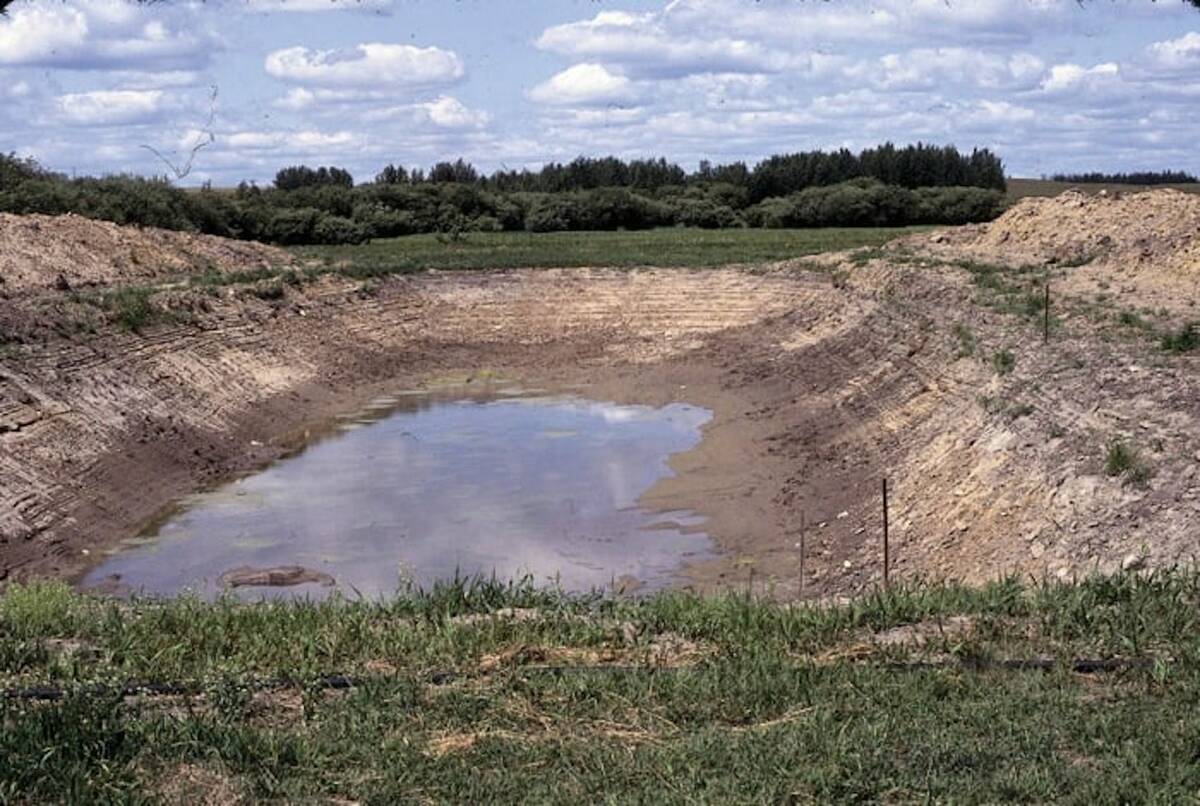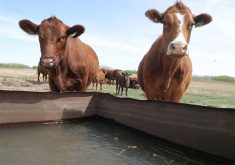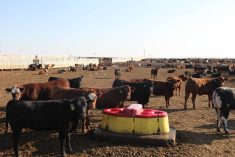GROSSE ISLE, Man. – Michael Trevan hopes a wave of common sense breaks over the turgid waters of debate about beef.
“As part of an otherwise balanced diet, this stuff is fine,” the University of Manitoba’s dean of agriculture told a Manitoba Cattle Producers Association media briefing May 21.
Trevan’s comments were prompted by the negative consumer reaction that is developing toward beef following studies that suggest beef is connected to various human health problems.
He attacked the studies, saying they go too far and make unjustified conclusions, but he also focused on a common sense approach that would make the debate disappear if people embraced it.
Read Also

Dry summer conditions can lead to poor water quality for livestock
Drought conditions in the Prairies has led to an decrease in water quality, and producers are being advised to closely monitor water quality for their animals.
No one should be eating 10 pounds of charred beef a day, he said.
“Any food eaten in excess and cooked in a way that could cause chemical changes that could be bad for you is (likely dangerous).”
Instead, consumers and the cattle industry should focus on making beef part of a wide-ranging diet. Even “healthy” food can be dangerous when eaten to excess, he added.
For example, Trevan said many people know that beef-binging Americans may suffer greater rates of cardiovascular disease than Japanese people, but few note that the Japanese suffer high rates of strokes that may be caused by the calcification of brain arteries from excessive seafood consumption.
He said the greatest health danger could be relying on too few food ingredients.
“Narrowing your diet could be bad for you.”
Another health threat arises from the overreliance on processed food. Processing often introduces many ingredients such as salt, trans fats and preservatives, which can damage people’s health if eaten in large amounts.
“Get away from overprocessing.” Recent studies that have connected beef consumption and human health problems don’t add much clarity to the debate, Trevan said.
Too many random factors and unknowns are involved to offer consumers much certainty.
“They may be able to find a statistical correlation between two things, but that doesn’t actually mean it’s cause and effect,” he said. “There are some good studies, but we’re not entirely sure what they mean.”

















